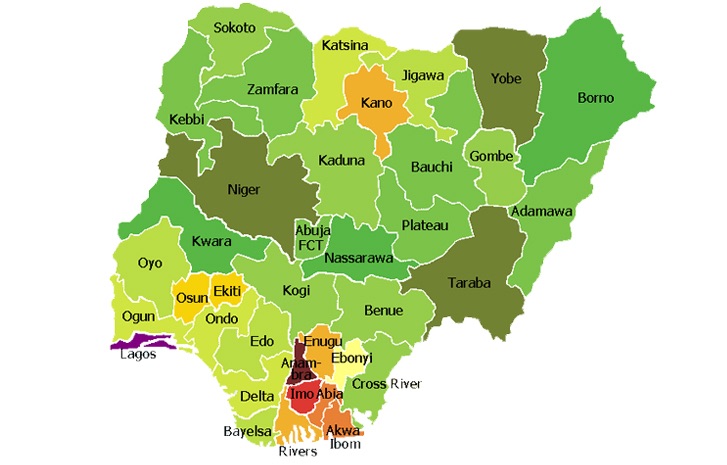State governments play a pivotal role in driving economic development in Nigeria. As the middle layer of governance, they bridge federal policies and grassroots implementation. For beginner investors, understanding the economic activities and policies of Nigerian states can offer valuable insights into investment opportunities, particularly in Nigerian companies and sectors.
1. Infrastructure Development
State governments are responsible for critical infrastructure that enables economic activities, such as roads, bridges, and energy projects. For example:
- The Anambra State government’s recent N200 billion allocation for road projects is a key move to boost local trade and attract investors.
- Infrastructure projects often stimulate sectors such as construction, manufacturing, and transportation, providing lucrative opportunities for Nigerian investors.
2. Facilitating Local Businesses
State governments create policies and incentives to promote entrepreneurship and attract investments. Through initiatives such as tax holidays, grants, and support for small and medium-sized enterprises (SMEs), they foster an enabling environment for business growth. Sectors like agriculture and manufacturing, often managed at the state level, are central to this development.
3. Resource Management
Nigeria’s states are endowed with varying natural resources, from crude oil in the Niger Delta to solid minerals in Plateau and Kogi States. State governments play a crucial role in managing these resources responsibly and attracting private sector participation for exploration and processing. For instance, the focus on mining in Plateau and Oyo states highlights the untapped potential in this sector.
4. Creating Economic Zones
Many state governments are establishing industrial parks, special economic zones, and free trade areas to attract foreign direct investment (FDI) and promote local manufacturing. These zones, when properly managed, can enhance Nigeria’s export base and create jobs. Investors can monitor developments in such zones to identify emerging opportunities.
5. Education and Skill Development
Human capital development is a cornerstone of economic growth. States are responsible for primary and secondary education and often collaborate with private institutions to enhance technical and vocational training. States like Lagos and Kaduna have prioritized skill development to boost employment and economic productivity.
6. Agriculture and Rural Development
Agriculture is a major contributor to Nigeria’s GDP, and state governments are at the forefront of agricultural policies and rural development. Programs that improve irrigation, provide fertilizers, and build storage facilities not only support farmers but also attract agribusiness investments.
7. Public-Private Partnerships (PPPs)
Through PPPs, state governments collaborate with private entities to finance and implement development projects. These partnerships are crucial for building infrastructure, expanding energy access, and improving healthcare and education. Investors in Nigerian companies involved in PPPs can benefit from stable returns and government backing.
8. Policy Implementation and Regulation
While the federal government sets broad economic policies, states have the autonomy to adapt these policies to their unique needs. Effective governance and regulatory frameworks at the state level ensure that policies translate into tangible economic outcomes.
Challenges Facing State Governments
Despite their role, state governments often face challenges such as:
- Inadequate Funding: Reliance on federal allocations limits their ability to fund large-scale projects.
- Corruption and Mismanagement: Poor accountability can hinder development and deter investors.
- Overdependence on Oil Revenues: Many states fail to diversify their economies, leaving them vulnerable to oil price fluctuations.
Opportunities for Investors
For investors, state government policies can reveal lucrative opportunities:
- Agriculture and Agro-processing: States like Kaduna and Kano with rich agricultural resources offer investment potential in farming and processing industries.
- Infrastructure Investments: Partnerships with state governments for road construction, housing, and energy projects can yield significant returns.
- SME Financing: Supporting state-level entrepreneurship programs can open up opportunities in growing businesses.
Conclusion
State governments are the backbone of economic development in Nigeria, driving growth through infrastructure, resource management, and policy implementation. For investors, these activities offer significant opportunities to participate in Nigeria’s evolving economy. From agriculture in Kaduna to industrial zones in Ogun, the economic strategies of each state reveal a wealth of investment possibilities.
Navigating this dynamic landscape requires staying informed about state-level initiatives, partnerships, and challenges. Whether you are a beginner exploring Nigerian stocks or an experienced investor seeking high-growth sectors, understanding the role of state governments is key to unlocking potential in Nigeria’s economy.
Stay ahead by leveraging resources like Naija Investment Hub, where we provide insights, updates, and tools to help you align your investments with Nigeria’s economic development for maximum impact and profitability.
